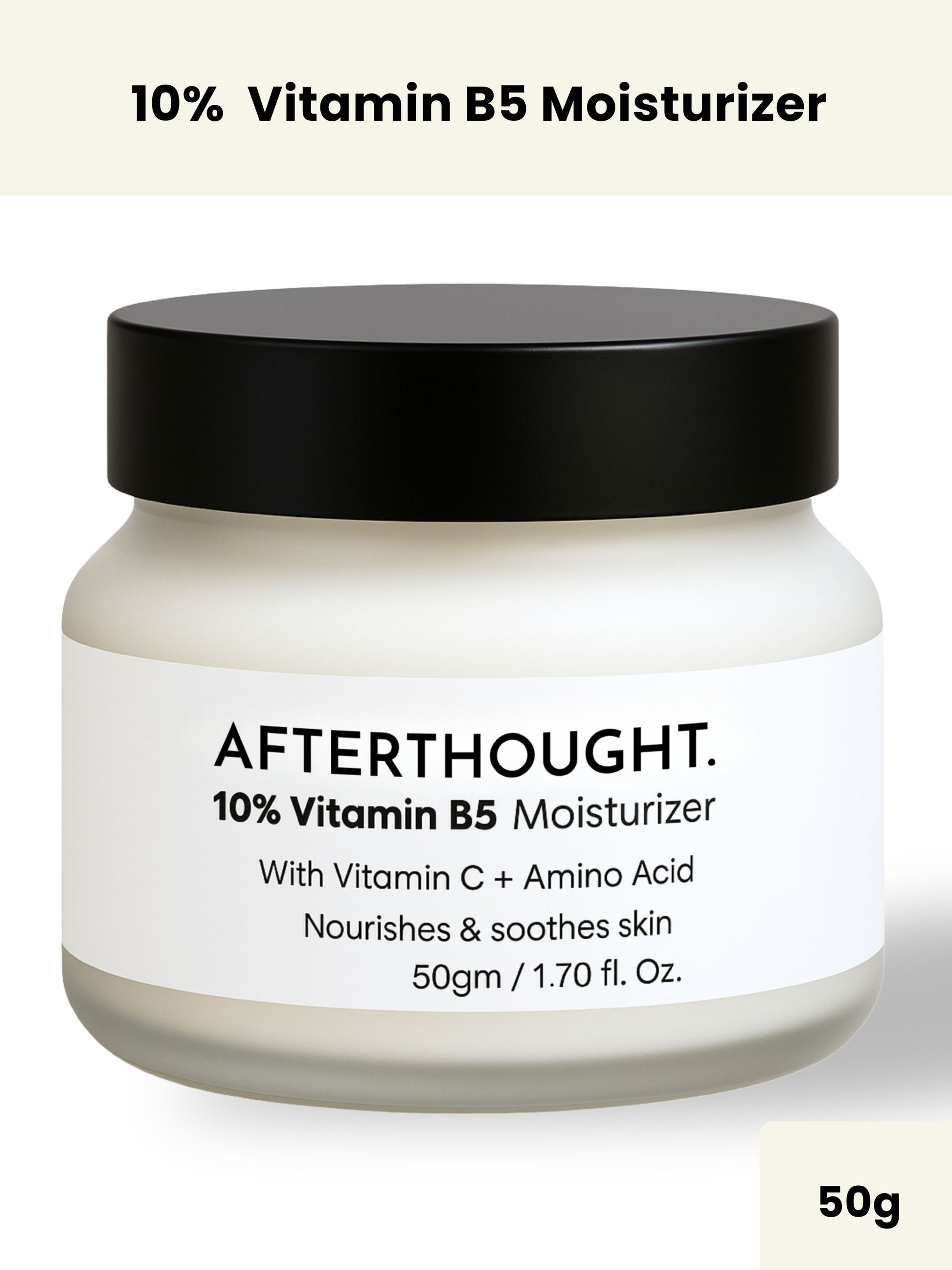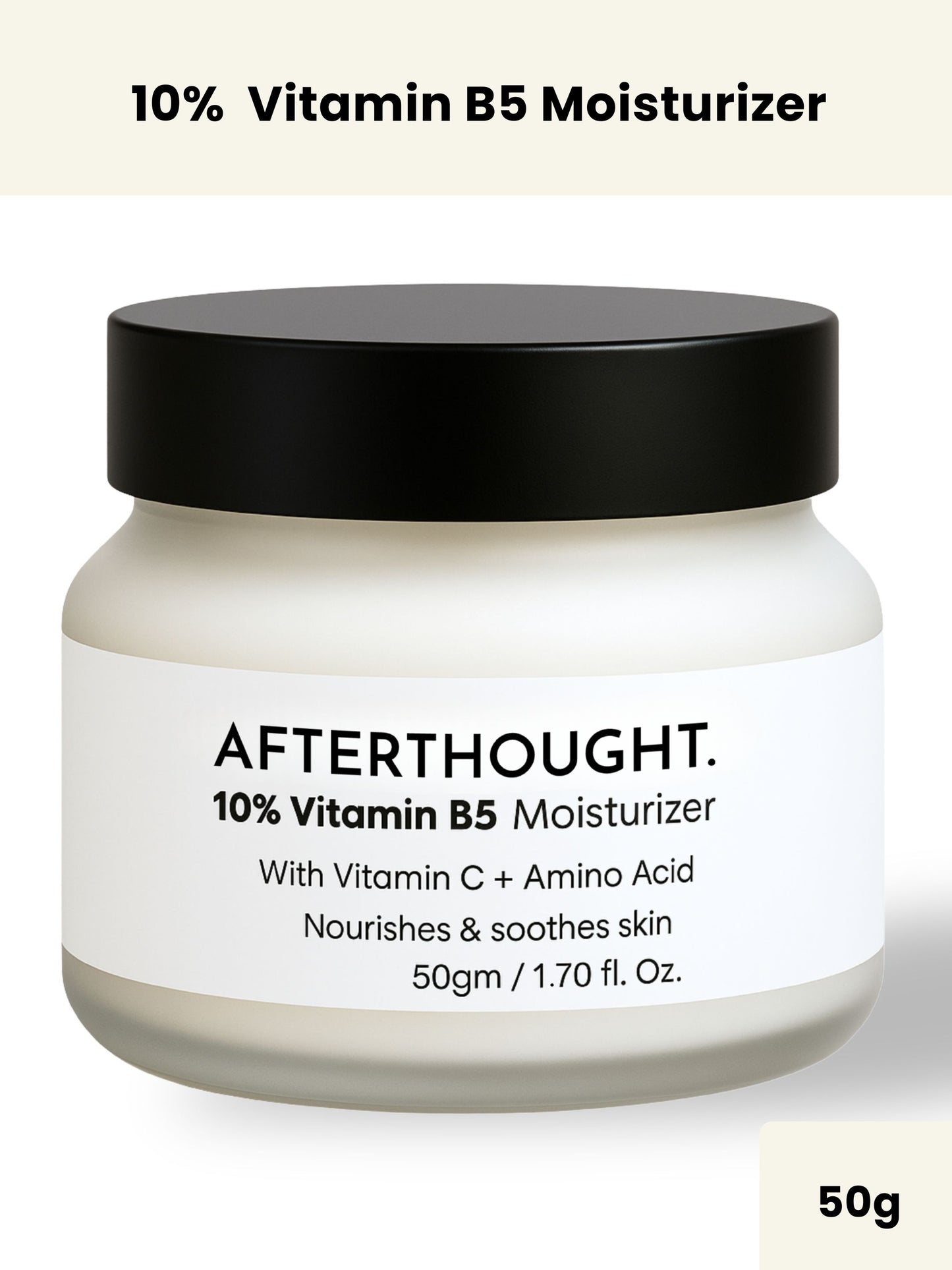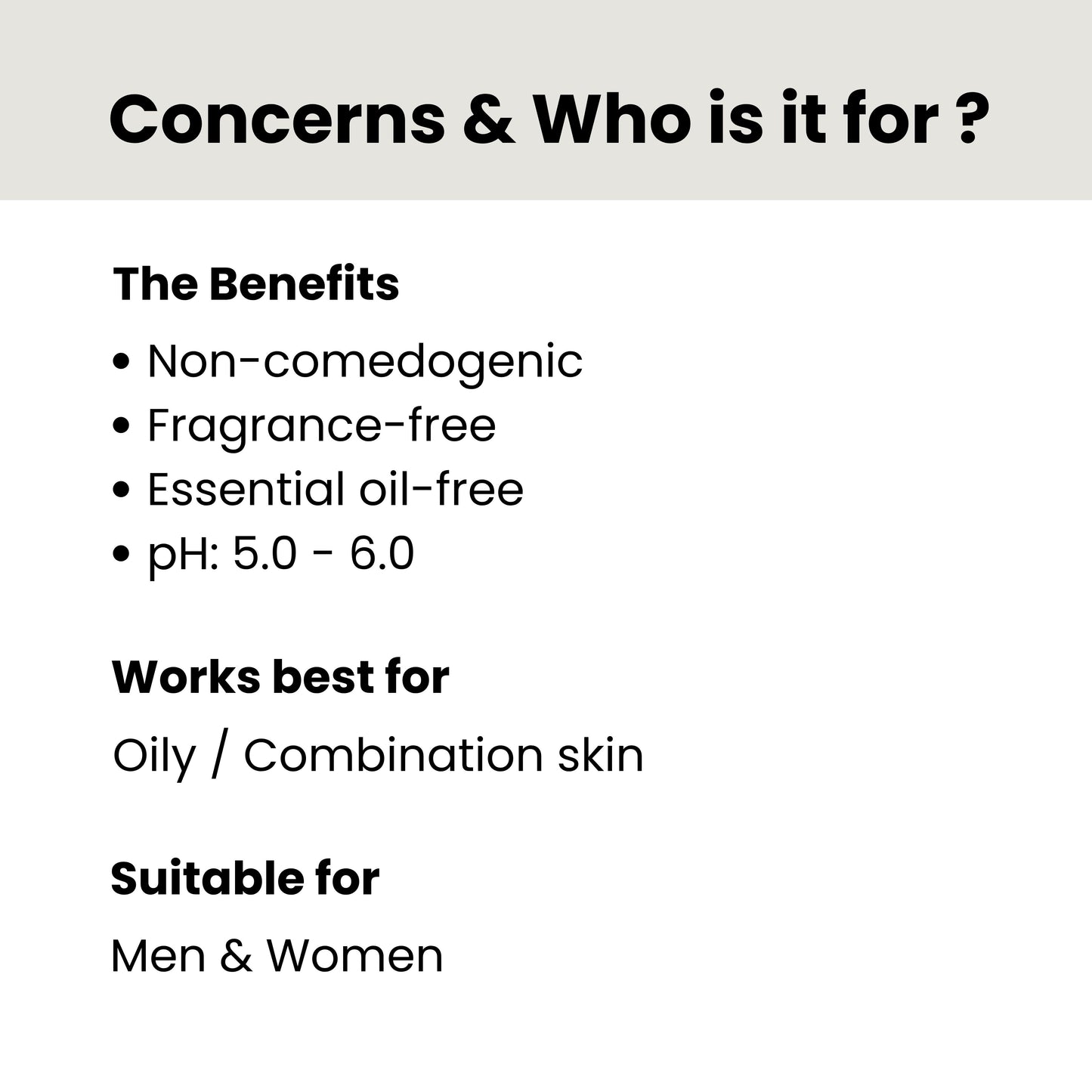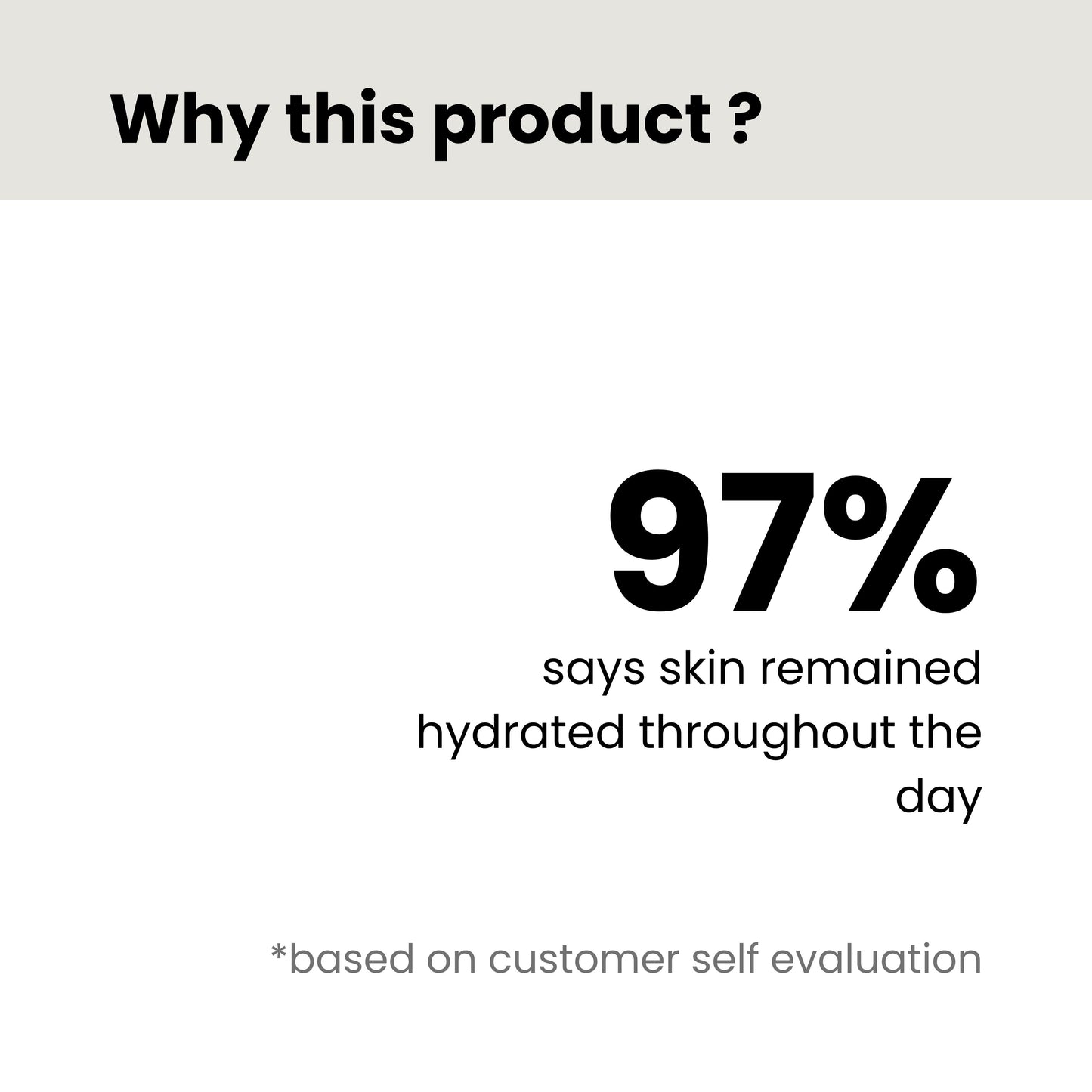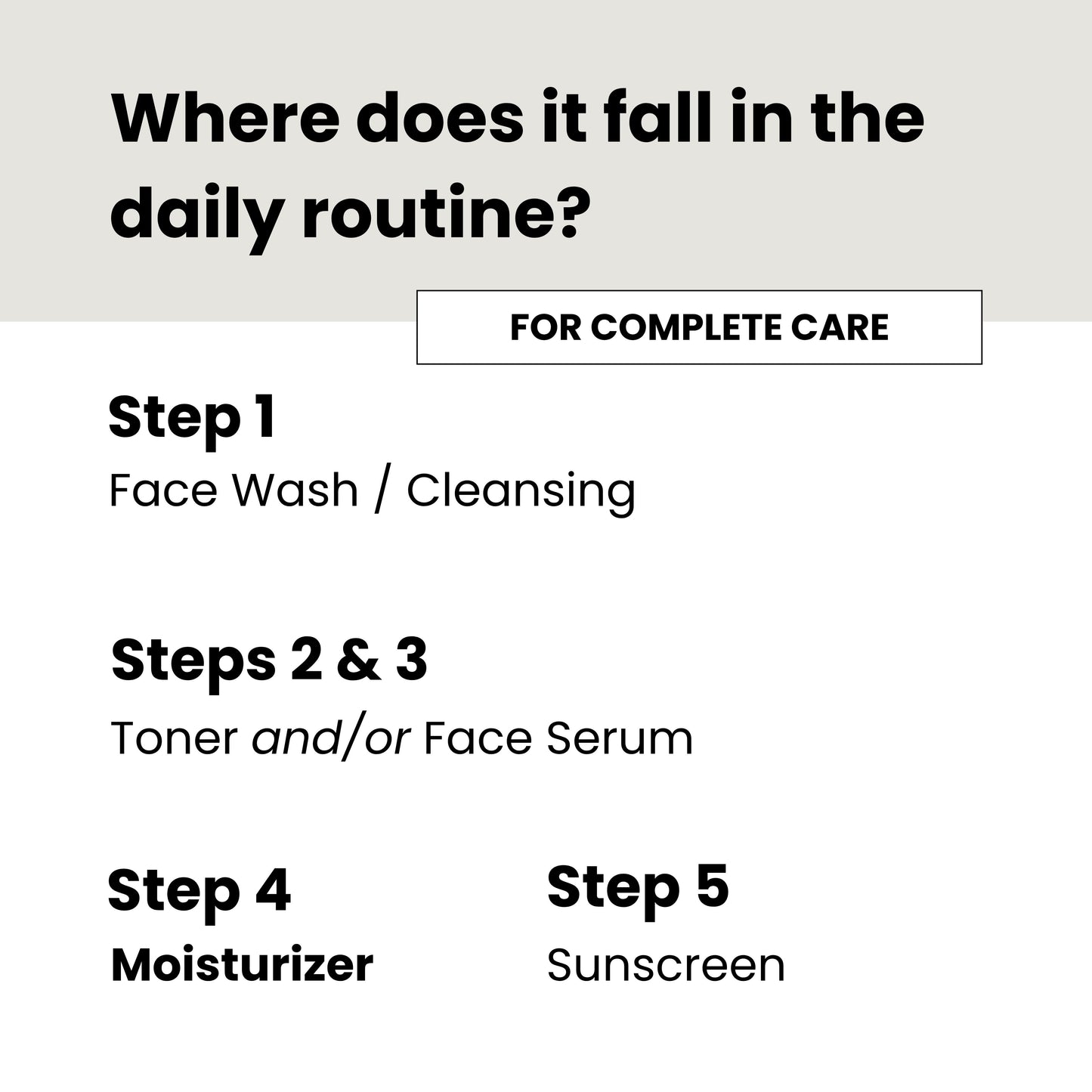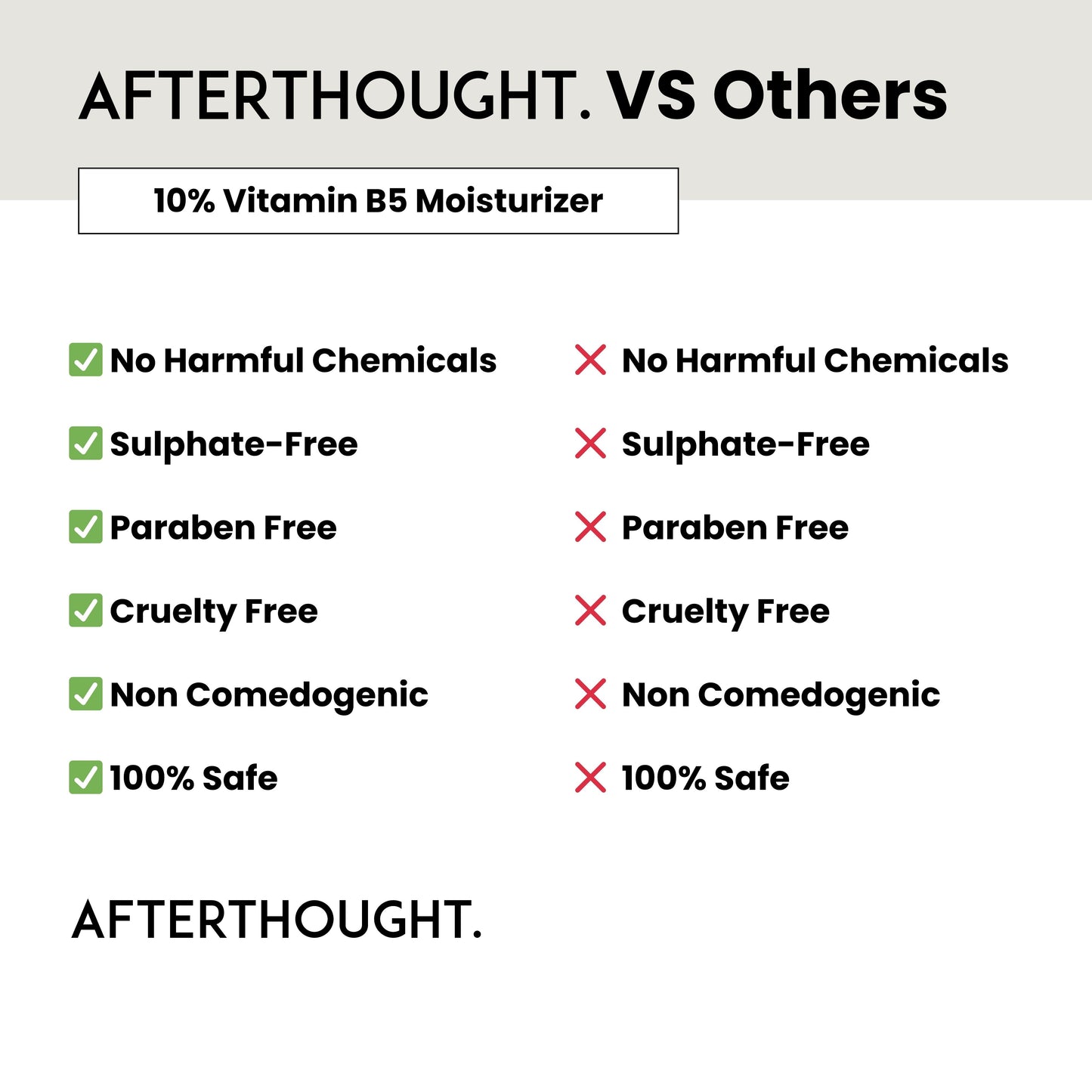What Is The Best Moisturizer For Oily Face?
Navigating the world of skincare can be overwhelming, especially when you have oily skin. The right moisturizer can make a significant difference, helping to balance your skin's oil production, hydrate it adequately, and keep it looking healthy and matte. Welcome to Afterthought.
In this comprehensive guide, we'll explore what makes a moisturizer suitable for oily skin and how to choose the best one for your needs.
Understanding Oily Skin
Oily skin is characterized by an overproduction of sebum, the natural oil produced by your skin's sebaceous glands. While sebum is essential for keeping your skin hydrated and protecting it from external aggressors, excessive production can lead to problems such as:
- Shiny, greasy appearance: This is most noticeable in the T-zone (forehead, nose, and chin).
- Clogged pores: Excess oil can mix with dead skin cells and other debris, leading to clogged pores and acne.
- Blackheads and whiteheads: These non-inflammatory acne types are common in oily skin.
- Inflamed pimples: In some cases, oily skin can also contribute to more severe forms of acne.
Key Ingredients to Look For
When selecting a moisturizer for oily skin, it's essential to look for specific ingredients that can help control oil production, hydrate the skin without clogging pores, and provide additional benefits like soothing and mattifying effects. Here are some ingredients to keep an eye on:
1. Hyaluronic Acid
Hyaluronic acid is a powerhouse hydrator that can hold up to 1000 times its weight in water. It provides lightweight hydration without making your skin greasy, making it ideal for oily skin types.
2. Niacinamide (Vitamin B3)
Niacinamide is a multi-functional ingredient known for its ability to regulate sebum production, reduce inflammation, and improve the skin's barrier function. It can help minimize the appearance of pores and reduce the frequency of breakouts.
3. Salicylic Acid
Salicylic acid is a beta-hydroxy acid (BHA) that penetrates deeply into the pores to exfoliate and remove excess oil and debris. It's particularly beneficial for those prone to acne and clogged pores.
4. Tea Tree Oil
Tea tree oil has natural antibacterial and anti-inflammatory properties, making it a great choice for oily and acne-prone skin. It can help reduce the number of active breakouts and prevent new ones from forming.
5. Clay
Ingredients like kaolin and bentonite clay can absorb excess oil and impurities from the skin, helping to mattify and reduce shine.
6. Glycerin
Glycerin is a humectant that attracts moisture to the skin. It provides hydration without feeling heavy or greasy, making it suitable for oily skin types.
Formulation Types
The texture and formulation of a moisturizer can also impact its suitability for oily skin. Here are some common types and what to look for:
1. Gel-Based Moisturizers
Gel-based moisturizers are lightweight and quickly absorbed into the skin. They provide hydration without leaving a greasy residue, making them ideal for oily skin.
2. Oil-Free Formulas
Oil-free moisturizers are specifically formulated to hydrate the skin without adding any extra oil. Look for labels that explicitly state "oil-free."
3. Non-Comedogenic Products
Non-comedogenic products are designed to not clog pores. This is crucial for oily skin, as clogged pores can lead to breakouts and blackheads.
4. Mattifying Moisturizers
Mattifying moisturizers contain ingredients that help control shine and keep your skin looking matte throughout the day. These can be particularly beneficial if you struggle with a greasy T-zone.
Also Read : Which Is Best Soap For Dry Skin?
Tips for Using Moisturizer on Oily Skin
Choosing the right moisturizer is just the first step. Here are some tips on how to use it effectively:
1. Cleanse Thoroughly
Always start with a clean face. Use a gentle, oil-free cleanser that helps remove excess oil and impurities without stripping your skin of its natural moisture.
2. Use Sparingly
A little goes a long way. Apply a small amount of moisturizer to your face, focusing on areas that need it most. Over-applying can lead to a greasy feeling and clogged pores.
3. Layer Wisely
If you use other skincare products like serums or treatments, make sure to apply them in the correct order. Typically, you should apply lighter, water-based products first, followed by thicker, oil-based ones.
4. Don't Skip Sunscreen
Even if your moisturizer contains SPF, it's a good idea to use a separate sunscreen. Look for oil-free, non-comedogenic sunscreens that won't clog your pores.
5. Adjust Seasonally
Your skin's needs can change with the seasons. In the summer, you might need a lighter, gel-based moisturizer, while in the winter, a slightly more hydrating formula might be necessary.
Also Read : Which Sunscreen Is Best For Sensitive Skin?
Common Myths About Moisturizing Oily Skin
"Oily Skin Doesn't Need Moisturizer"
This is a common misconception. Skipping moisturizer can actually make your skin produce more oil to compensate for the lack of hydration. The key is to choose the right type of moisturizer.
"All Oils Are Bad for Oily Skin"
While it's true that heavy, comedogenic oils can exacerbate oily skin problems, there are lightweight oils like jojoba oil that can help balance sebum production without clogging pores.
"You Should Use Harsh Products to Dry Out Your Skin"
Using harsh products can strip your skin of its natural oils, leading to increased oil production as your skin tries to compensate. Gentle, balanced skincare is crucial for managing oily skin effectively.
Conclusion
Finding the best moisturizer for oily skin involves understanding your skin's unique needs and choosing products with the right ingredients and formulations.
Look for lightweight, non-comedogenic, and oil-free options that provide adequate hydration without contributing to excess oil.
Remember, consistency and proper skincare practices are key to maintaining healthy, balanced skin. By following these guidelines, you can keep your oily skin under control and enjoy a clear, matte complexion.
Also Read : Which Soap Is Best For Sensitive Skin?


